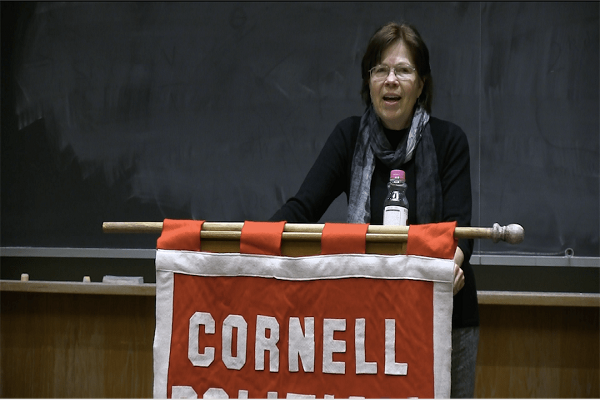Fear of Muslims Biggest Effect of 9/11 in American Society: US Scholar

The terrorist attacks of September 11, 2001, not only brought about major changes in US foreign policy and international relations but also led to the division of international relations history into two periods before and after 9/11.
As a result of policies adopted after the attack, the concept of “war on terror” officially entered the world’s political literature. This fight against terrorism and extremism also led to the targeting of some religious minorities, especially Muslims, by attacks and harassment in the US as well as in other states.
To further discuss the issue, IQNA reached out to Mildred Elizabeth Sanders, a professor of government at Cornell University.
Professor Sanders's principal research interests lie in American political development and popular politics. Her other research and teaching interests include the rise (and fall) of U.S. economic regulatory institutions, the executive branch generally, foreign policy, social movements, urban ecology and sustainability, and struggles to democratize governing processes.
Following is the full text of the interview:
IQNA: More than twenty years have passed since the September 11 terrorist attacks. What do you think is the biggest change in the domestic and foreign policy of the United States of America after these events?
Sanders: At this point, I think changes are slight. After decades of large military expenses and failure to accomplish anything useful, I would predict fewer uses of the military…. especially since we are now perhaps moving into another cold war with major powers and have huge new domestic expenditures. One might credit Donald Trump for taking a strong position against invasions of other countries. And President Biden followed his lead in Afghanistan.
IQNA: Some believe that the 9/11 attacks put more pressure on minorities in American society, such as Muslims. What do you think was the reason for this pressure?
Sanders: Terrorism does create hostility to the cultures that sponsor it. But that hostility has decreased a lot since 9-11. There are several Muslims in Congress and a big increase in Muslims running for office in the U.S. in the last few years.
IQNA: What do you think was the biggest change in American society after the 9/11 attacks?
Sanders: One might say “fear of Muslims” and increasing skepticism of Saudi Arabia (though that was not visible with Presidents Trump or Biden. The Saudis get credit—with both Trump and Biden—for their more positive relationship with Israel.
IQNA: Why are conspiracy theories about the 9/11 attacks still published and accepted by some people?
Sanders: With social media, there are now conspiracy theories about everything. And the national government’s unwillingness to publish data on the perpetrators of 9-11 adds to the skepticism.
IQNA: Why do you think that despite the death of people like Osama bin Laden or the defeat of ISIS in the Middle East, terrorism still exists as a major security problem in the world?
Sanders: Yes, clearly it still exists in Africa, the Middle East, and occasionally in the West. I cannot explain why so much violence exists. In the U.S, Muslims obviously face far less prejudice than non-Muslims (or non-Sunni’s) do in the Middle East.
Interview by Mohammad Hassan Goodarzi
The views and opinions expressed in this interview are solely those of the interviewee and do not necessarily reflect the view of International Quran News Agency.



